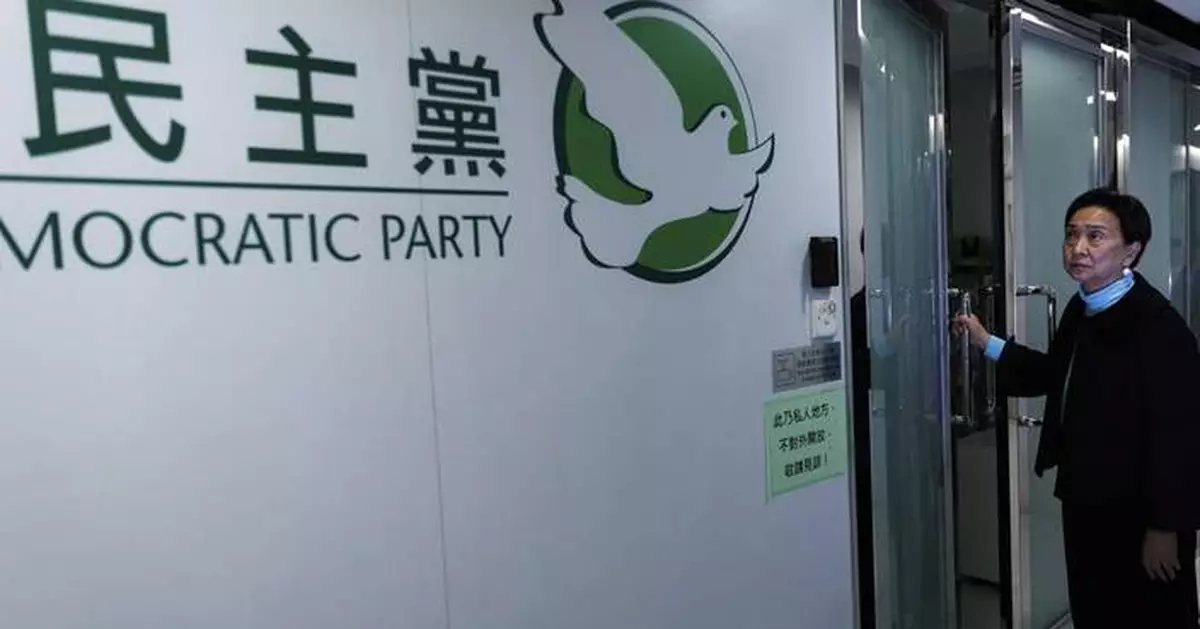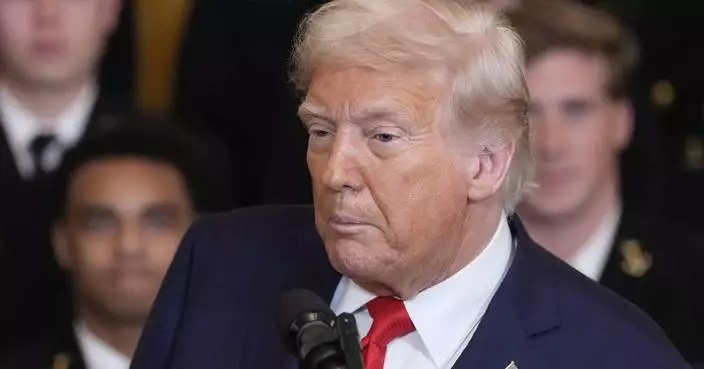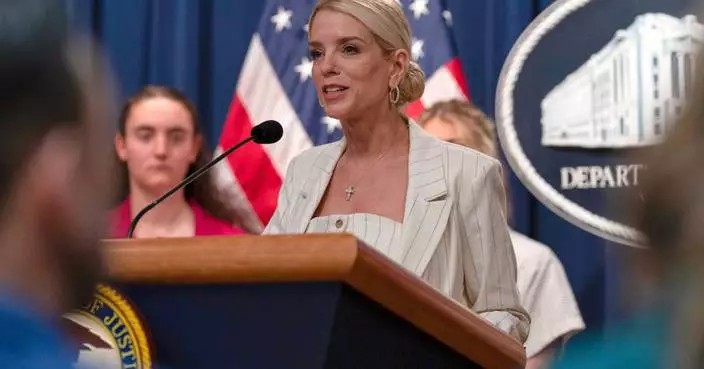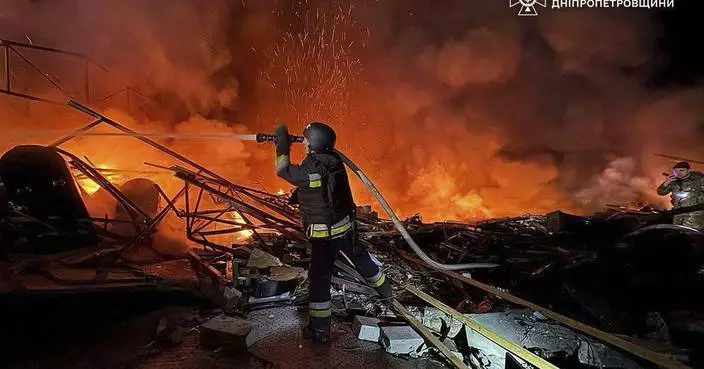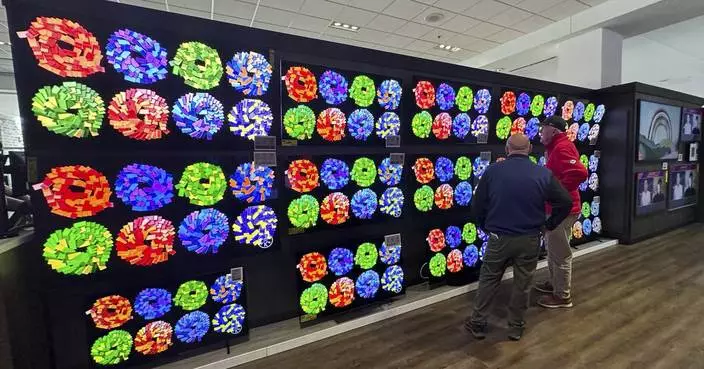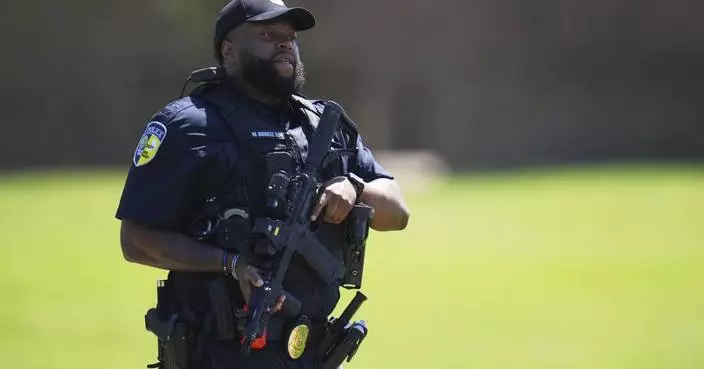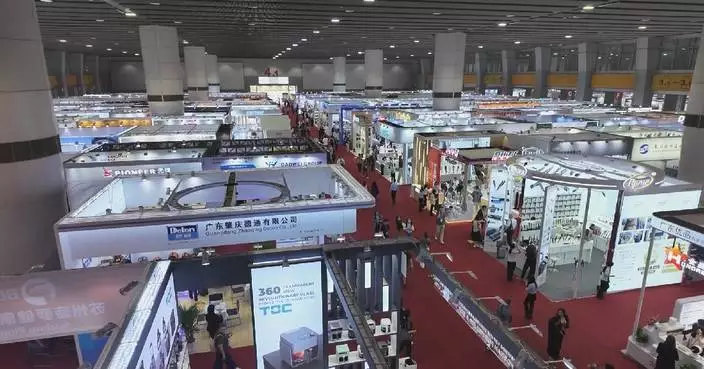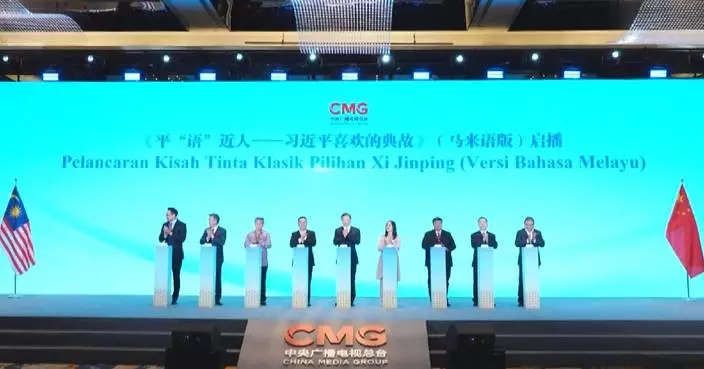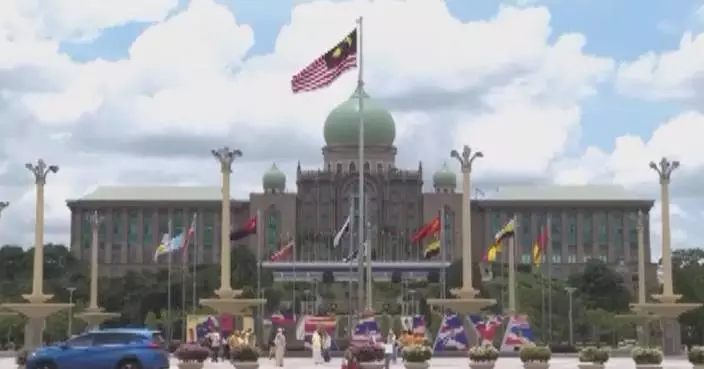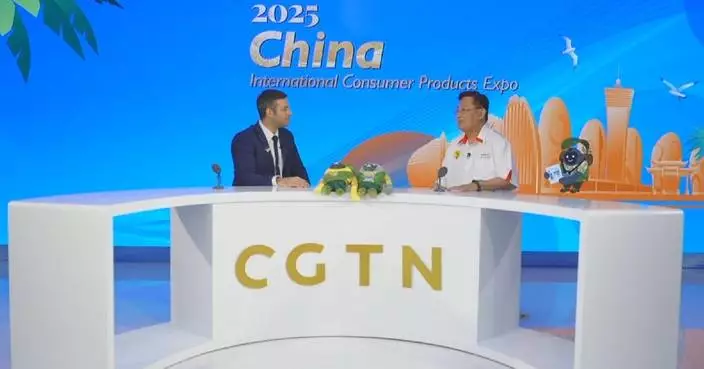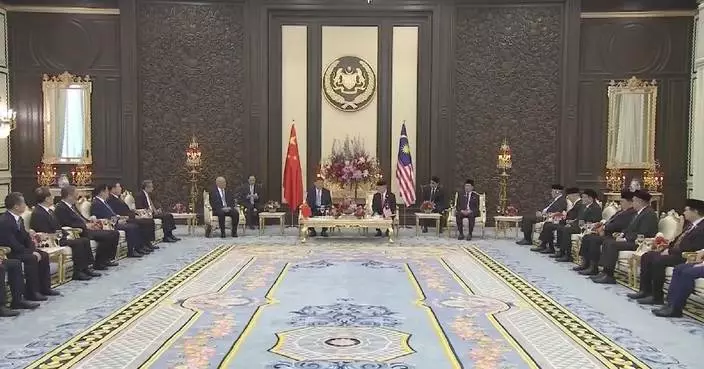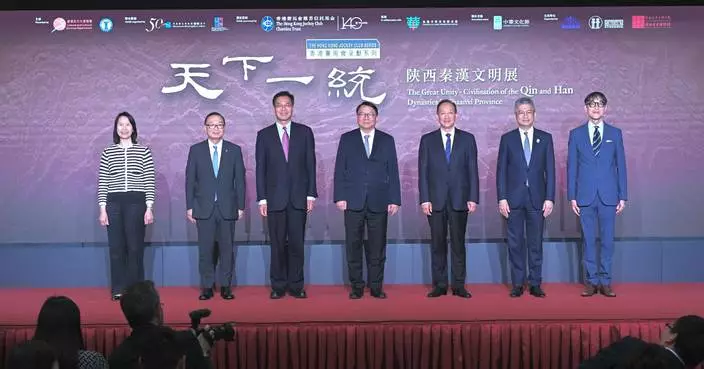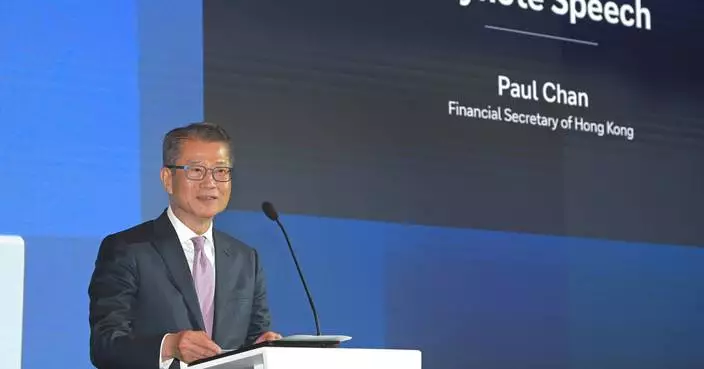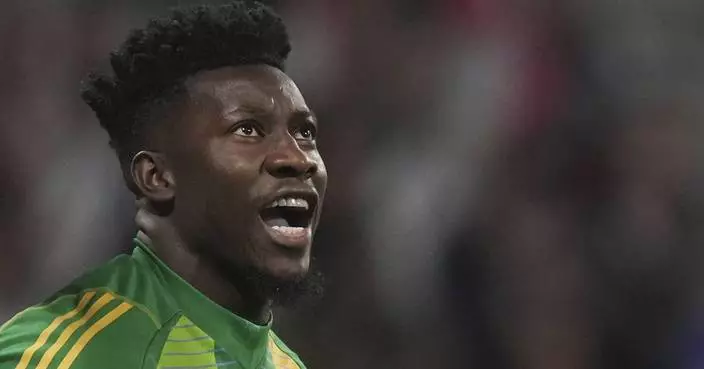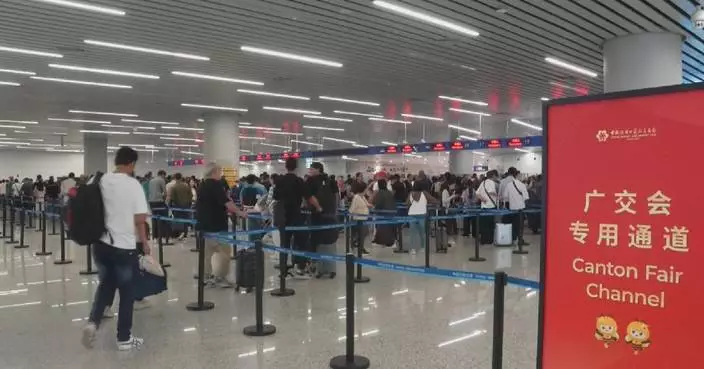HONG KONG (AP) — Hong Kong's biggest pro-democracy party on Sunday received its members' mandate to proceed with steps toward a potential disbandment, part of the erosion of political freedoms as China cracks down on dissent in the southern city.
Democratic Party Chairman Lo Kin-hei said over 90% of the members who took part in the vote supported the motion to let the central committee take up the procedure toward disbandment. He said he hopes there will be a final vote in the coming months.
Click to Gallery
Lo Kin-hei, left, chairman of Hong Kong's Democratic Party and Mok Kin-shing, vice chairman, pose for photographs at a press conference at the office of Hong Kong's Democratic Party in Hong Kong on Sunday, April 13, 2025. (AP Photo/Chan Long Hei)
Lo Kin-hei, center, chairman of Hong Kong's Democratic Party and Mok Kin-shing, center right, vice chairman, arrive at a press conference at the office of Hong Kong's Democratic Party in Hong Kong on Sunday, April 13, 2025. (AP Photo/Chan Long Hei)
Lo Kin-hei, chairman of Hong Kong's Democratic Party, poses for photographs at a press conference at the office of Hong Kong's Democratic Party in Hong Kong on Sunday, April 13, 2025. (AP Photo/Chan Long Hei)
Lo Kin-hei, left, chairman of Hong Kong's Democratic Party and Mok Kin-shing, vice chairman, pose for photographs at a press conference at the office of Hong Kong's Democratic Party in Hong Kong on Sunday, April 13, 2025. (AP Photo/Chan Long Hei)
Lo Kin-hei, chairman of Hong Kong's Democratic Party, speaks at a press conference at the office of Hong Kong's Democratic Party in Hong Kong on Sunday, April 13, 2025. (AP Photo/Chan Long Hei)
Emily Lau, former chairperson of the Democratic Party, closes the door to the Democratic Party's office in Prince Edward in Hong Kong on April 2, 2025. (AP Photo/May James)
“Unless there is a big change, I believe this inclination will be maintained in the next general meeting,” he said, adding that the party would continue with its work until then. The process might not finish this year, said vice chair Mok Kin-shing.
The party’s decision reflects the dwindling semi-autonomy and freedoms promised to the former British colony when it returned to China’s rule in 1997. The moderate political party has effectively become a pressure group, members say.
Lo earlier said the decision was made based on the current political situation and social climate. Party veterans told The Associated Press that some members were warned of consequences if the party didn't shut down.
Massive anti-government protests in 2019 led China to impose a sweeping national security law that was used to prosecute many leading activists. Some of the party's former lawmakers are now in prison, and the party has been absent from elections after authorities overhauled the electoral system to ensure only “patriots” can run.
The Democratic Party, founded in 1994, is one of the few remaining pro-democracy groups that still speak out from time to time following the closure of dozens of civil society groups under the shadow of the security law. They include the city’s once second-largest pro-democracy party and a decades-old group that organized the annual vigil to commemorate Beijing’s Tiananmen crackdown in 1989.
The party had long positioned itself as a moderate pro-democracy force. Some of its former members joined the government as senior officials. Its willingness to negotiate with Beijing led to its proposal being included in a 2010 political reform package — a move that drew harsh criticism from some members and other democracy advocates who wanted more sweeping changes.
Prominent party members include Martin Lee, nicknamed the city’s “father of democracy,” Albert Ho, former leader of the group that organized Tiananmen vigils, and journalist-turned-activist Emily Lau.
Lau and former lawmaker Fred Li were among the members who attended Sunday's meeting. Lo said about 110 members voted in person or through proxies.
Former chairman Yeung Sum said it was a pity that the party was preparing to disband. He said he believed the “one country, two systems” is the most viable system for the city under Beijing's rule. Hong Kong's open society and pluralistic culture under the relative democratic political system is beneficial to the future of the local community and China's economic development, he said.
He believes Hong Kongers who tasted an open political system and the rule of law would not give it up.
“The political culture and the fight for democracy will carry on in Hong Kong in a peaceful and relational manner,” he said.
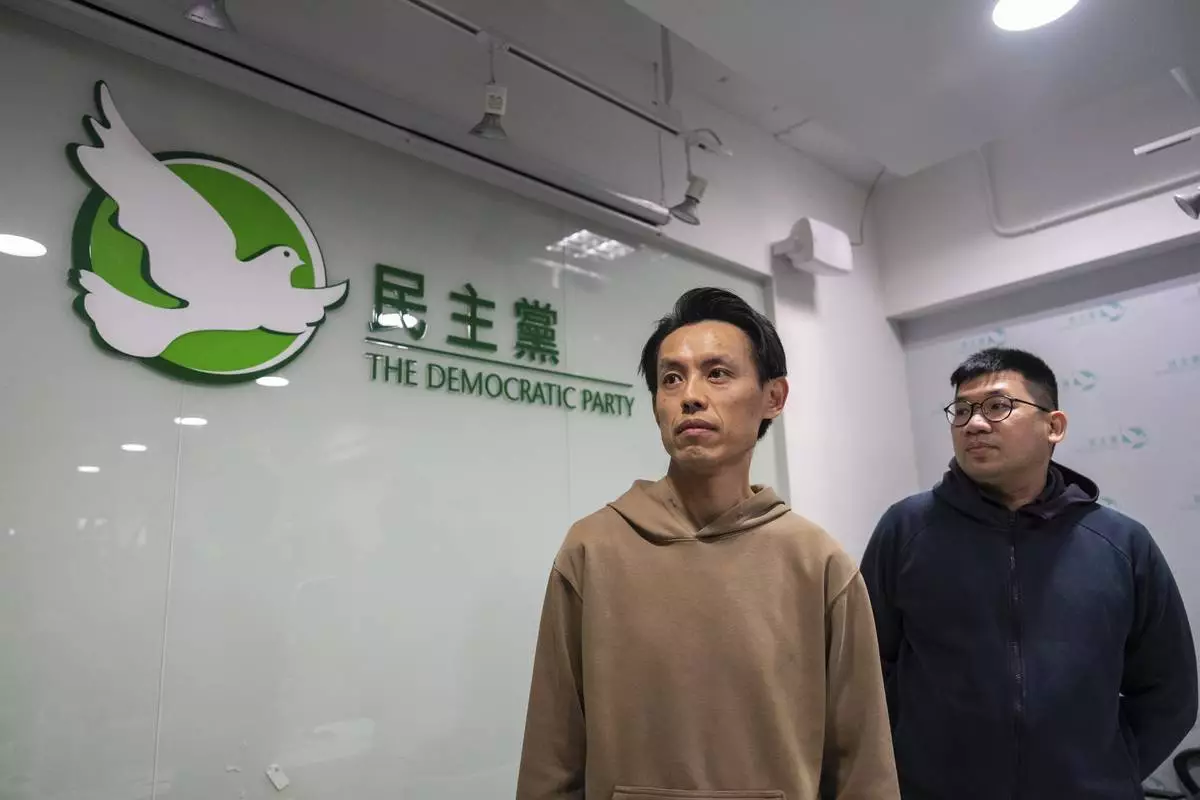
Lo Kin-hei, left, chairman of Hong Kong's Democratic Party and Mok Kin-shing, vice chairman, pose for photographs at a press conference at the office of Hong Kong's Democratic Party in Hong Kong on Sunday, April 13, 2025. (AP Photo/Chan Long Hei)
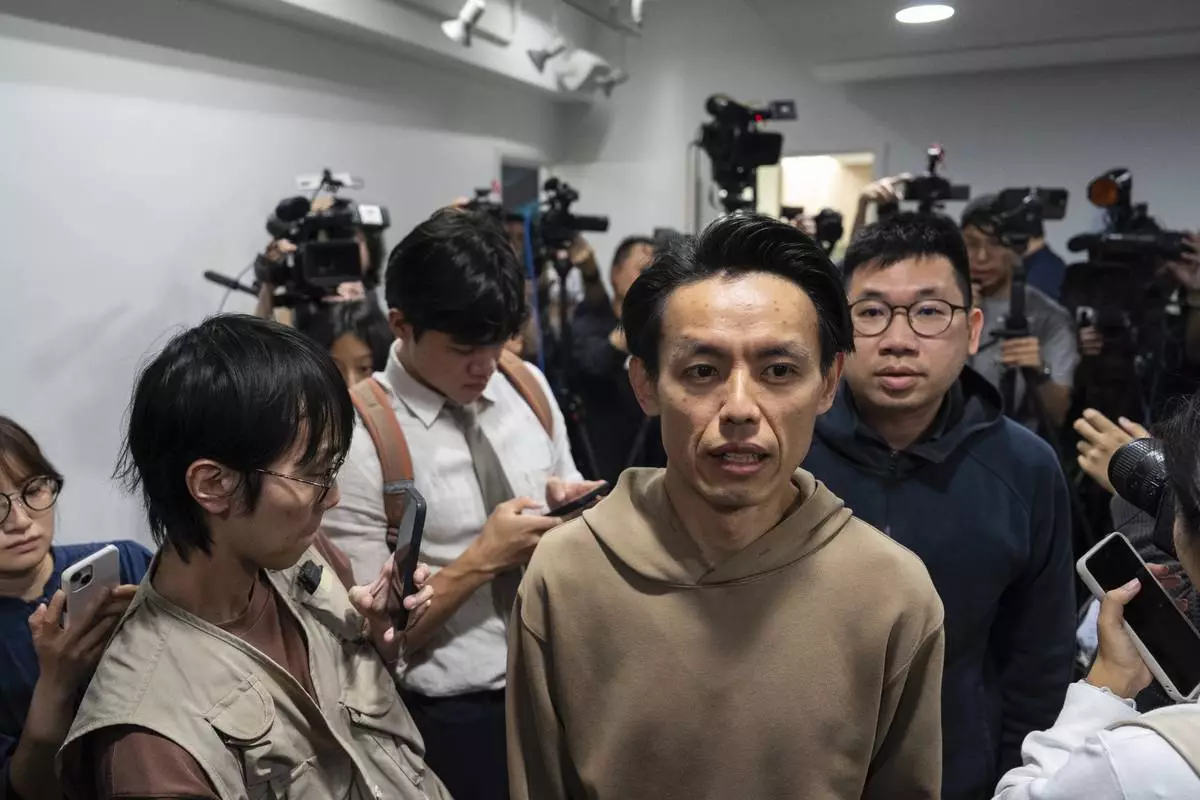
Lo Kin-hei, center, chairman of Hong Kong's Democratic Party and Mok Kin-shing, center right, vice chairman, arrive at a press conference at the office of Hong Kong's Democratic Party in Hong Kong on Sunday, April 13, 2025. (AP Photo/Chan Long Hei)
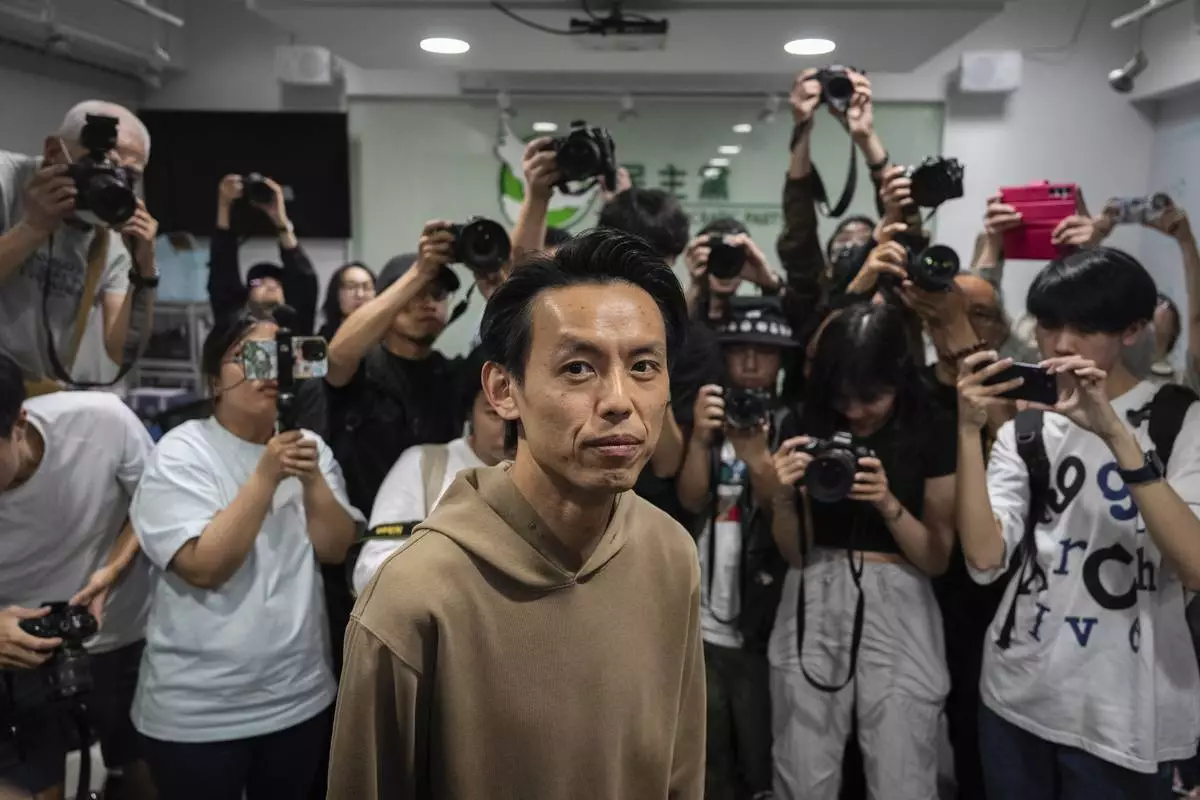
Lo Kin-hei, chairman of Hong Kong's Democratic Party, poses for photographs at a press conference at the office of Hong Kong's Democratic Party in Hong Kong on Sunday, April 13, 2025. (AP Photo/Chan Long Hei)
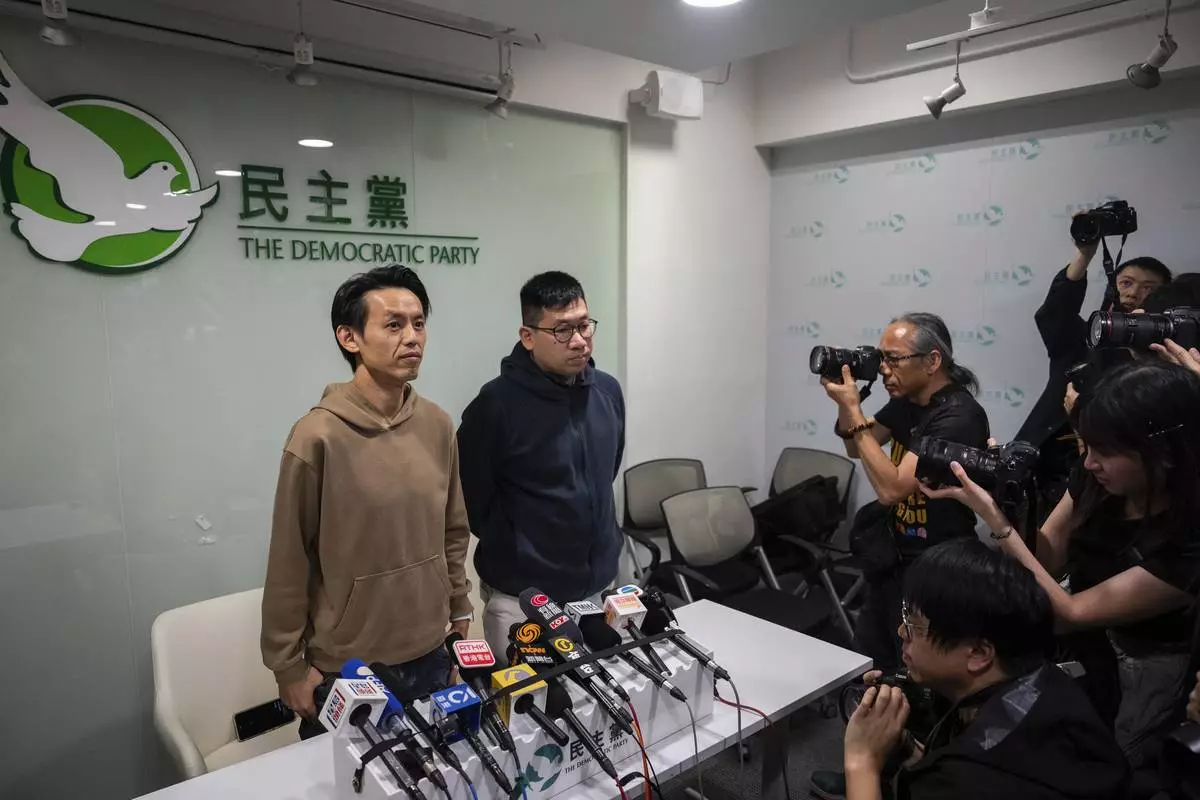
Lo Kin-hei, left, chairman of Hong Kong's Democratic Party and Mok Kin-shing, vice chairman, pose for photographs at a press conference at the office of Hong Kong's Democratic Party in Hong Kong on Sunday, April 13, 2025. (AP Photo/Chan Long Hei)
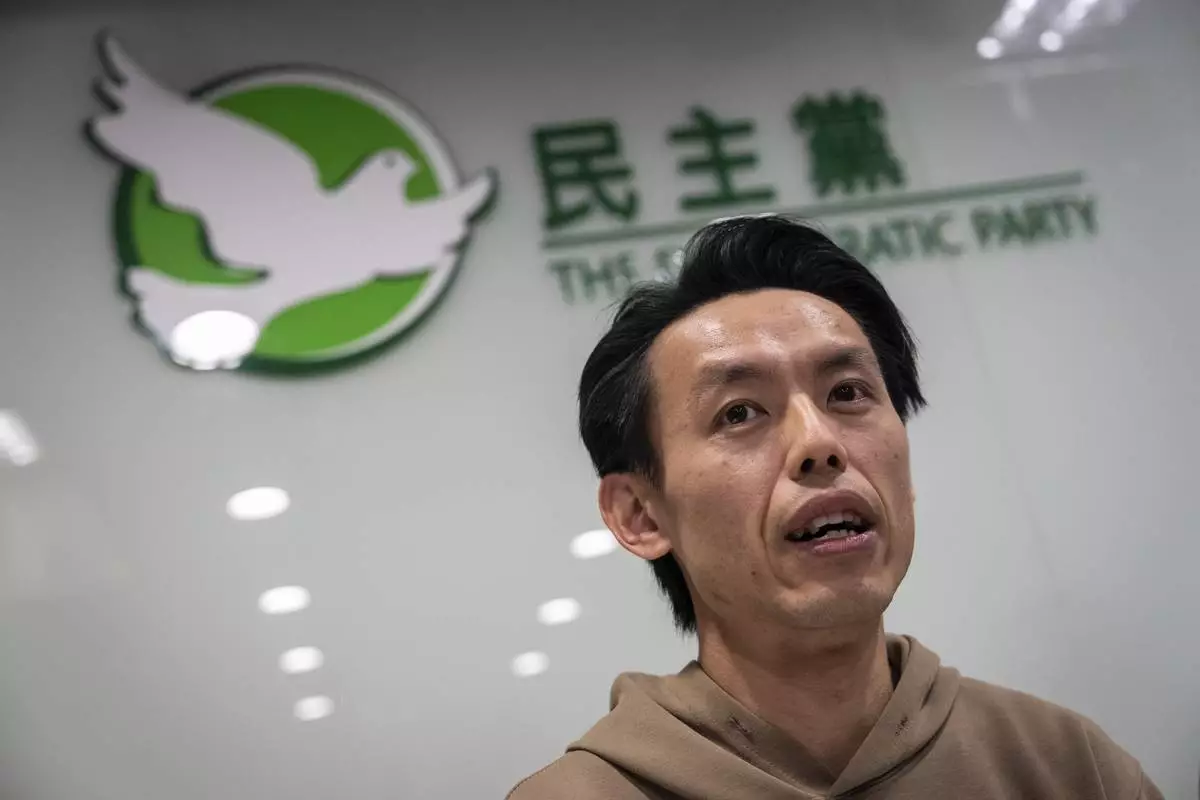
Lo Kin-hei, chairman of Hong Kong's Democratic Party, speaks at a press conference at the office of Hong Kong's Democratic Party in Hong Kong on Sunday, April 13, 2025. (AP Photo/Chan Long Hei)
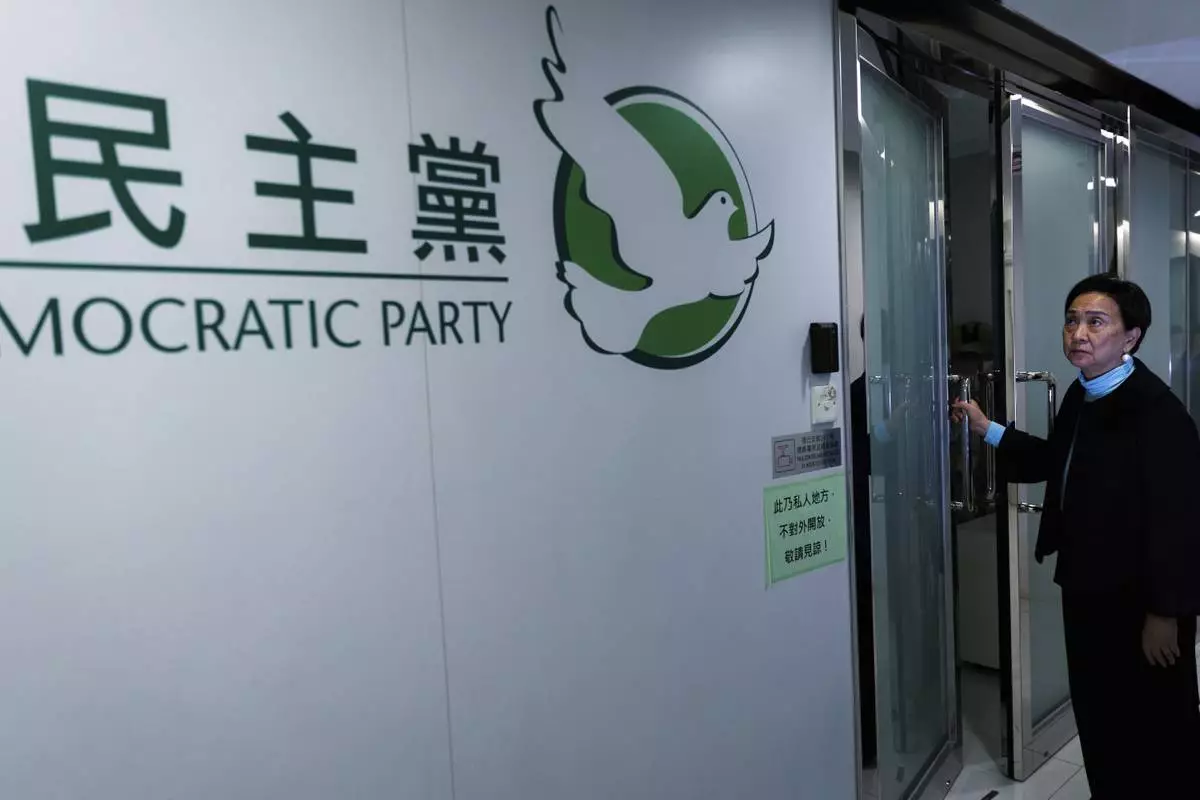
Emily Lau, former chairperson of the Democratic Party, closes the door to the Democratic Party's office in Prince Edward in Hong Kong on April 2, 2025. (AP Photo/May James)
WASHINGTON (AP) — At first, the bar association for immigration attorneys began receiving inquiries from a couple students a day. These were foreigners studying in the U.S., and they'd discovered in early April their legal status had been terminated with little notice. To their knowledge, none of the students had committed a deportable offense.
In recent days, the calls have begun flooding in. Hundreds of students have been calling to say they have lost legal status, seeking advice on what to do next.
“We thought it was going to be something that was unusual,” said Matthew Maiona, a Boston-based immigration attorney who is getting about six calls a day from panicked international students. “But it seems now like it’s coming pretty fast and furious.”
The speed and scope of the federal government's efforts to terminate the legal status of international students have stunned colleges across the country. Few corners of higher education have been untouched, as schools ranging from prestigious private universities, large public research institutions and tiny liberal arts colleges discover status terminations one after another among their students.
At least 901 students at more than 128 colleges and universities have had their visas revoked or their legal status terminated in recent weeks, according to an Associated Press review of university statements and correspondence with school officials. Advocacy groups collecting reports from colleges say hundreds more students could be caught up in the crackdown.
Around 1.1 million international students were in the United States last year — a source of essential revenue for tuition-driven colleges. International students are not eligible for federal financial aid, and their ability to pay tuition often factors into whether they will be admitted to American schools. Often, they pay full price.
Many of the students losing their legal status are from India and China, which together account for more than half the international students at American colleges. But the terminations have not been limited to those from any one part of the world, lawyers said.
Four students from two Michigan universities are suing Trump administration officials after their F-1 student status was terminated last week. Their attorney with the American Civil Liberties Union, Ramis Wadood, said the students never received a clear reason why.
“We don’t know, and that’s the scary part,” he said.
The students were informed of the status terminations by their universities via email, which came as a shock, Wadood said. The reason given was that there was a “criminal records check and/or that their visa was revoked,” Wadood said, but none of them were charged or convicted of crimes. Some had either speeding or parking tickets, but one didn’t have any, he said. Only one of the students had known their entry visa was revoked, Wadood said.
Last month, Secretary of State Marco Rubio said the State Department was revoking visas held by visitors who were acting counter to national interests, including some who protested Israel's war in Gaza and those who face criminal charges.
But many students say they don't fall under those categories. Students have filed lawsuits in several states, arguing they were denied due process.
In New Hampshire, a federal judge last week granted a temporary restraining order to restore the status of a Ph.D. student at Dartmouth College, Xiaotian Liu. On Tuesday, a federal judge in Wisconsin issued a similar order, ruling the government could not take steps to detain or revoke the visa of a University of Wisconsin-Madison gradate student.
Two graduate students at Montana State University, Bozeman, on Tuesday were granted a temporary restraining order by a federal judge in Montana, restoring their terminated legal status and shielding them from efforts to remove them from the U.S.
At many colleges, officials learned the legal immigration status of some international students had been terminated when staff checked a database managed by the Department of Homeland Security. In the past, college officials say, legal statuses typically were updated after colleges told the government the students were no longer studying at the school.
The system to track enrollment and movements of international students came under the control of Immigration and Customs Enforcement after 9/11, said Fanta Aw, CEO of NAFSA, an association of international educators. She said recent developments have left students fearful of how quickly they can be on the wrong side of enforcement.
“You don’t need more than a small number to create fear,” Aw said. “There’s no clarity of what are the reasons and how far the reach of this is.”
Her group says as many as 1,300 students have lost visas or had their status terminated, based on reports from colleges.
The Department of Homeland Security and State Department did not respond to messages seeking comment.
Foreigners who are subject to removal proceedings are usually sent a notice to appear in immigration court on a certain date, but lawyers say affected students have not received any notices, leaving them unsure of next steps to take.
Some schools have told students to leave the country to avoid the risk of being detained or deported. But some students have appealed the terminations and stayed in the United States while those are processed.
Still others caught in legal limbo aren't students at all. They had remained in the U.S. post-graduation on “optional practical training,” a one-year period — or up to three for science and technology graduates — that allows employment in the U.S. after completing an academic degree. During that time, a graduate works in their field and waits to receive their H-1B or other employment visas if they wish to keep working in the U.S.
Around 242,000 foreigners in the U.S. are employed through this “optional practical training.” About 500,000 are pursuing graduate degrees, and another 342,000 are undergraduate students.
Among the students who have filed lawsuits is a Georgia Tech Ph.D. student who is supposed to graduate on May 5, with a job offer to join the faculty. His attorney Charles Kuck said the student was likely targeted for termination because of an unpaid traffic fine from when the student lent his car to a friend. Ultimately, the violation was dismissed.
“We have case after case after case exactly like that, where there is no underlying crime,” said Kuck, who is representing 17 students in the federal lawsuit. He said his law firm has heard from hundreds of students.
“These are kids who now, under the Trump administration, realize their position is fragile,” he said. “They’ve preyed on a very vulnerable population. These kids aren’t hiding. They’re in school.”
Some international students have been adapting their daily routines.
A Ph.D. student from China at University of North Carolina at Chapel Hill said she has begun carrying around her passport and immigration paperwork at the advice of the university’s international student office. The student, who spoke on condition of anonymity for fear of being targeted by authorities, said she has been distressed to see the terminations even for students like her without criminal records.
Seminera reported from Raleigh, N.C., and Keller reported from Albuquerque, N.M.
The Associated Press’ education coverage receives financial support from multiple private foundations. AP is solely responsible for all content. Find AP’s standards for working with philanthropies, a list of supporters and funded coverage areas at AP.org.
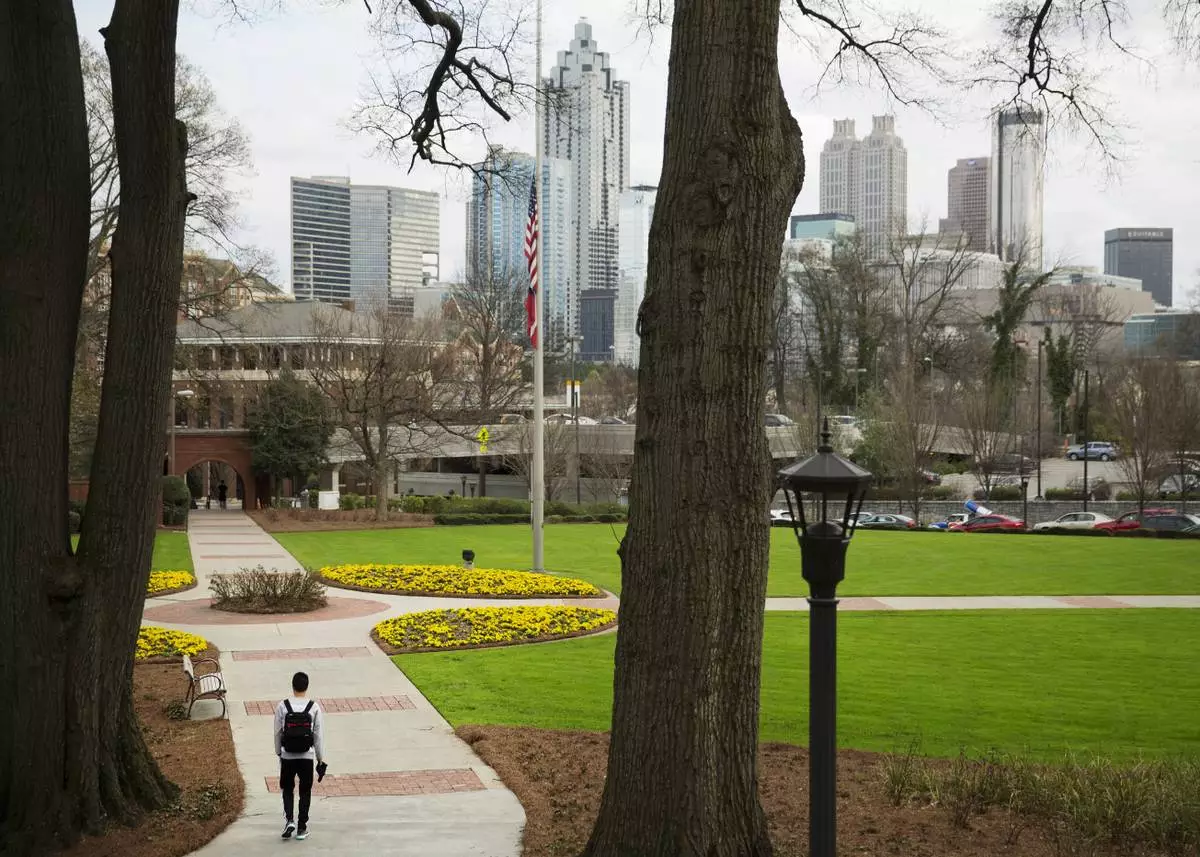
FILE - A person walks through the Georgia Tech campus with the downtown skyline in the background, March 11, 2016, in Atlanta. (AP Photo/David Goldman, File)








